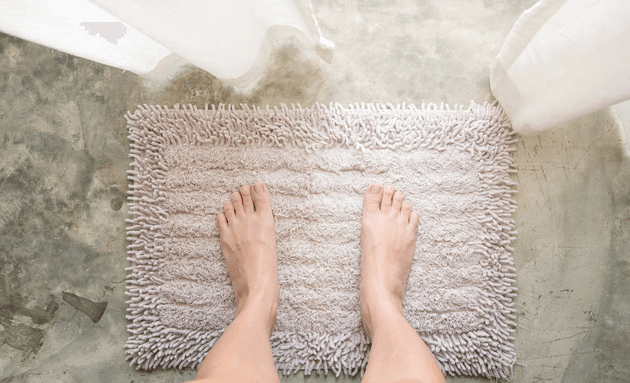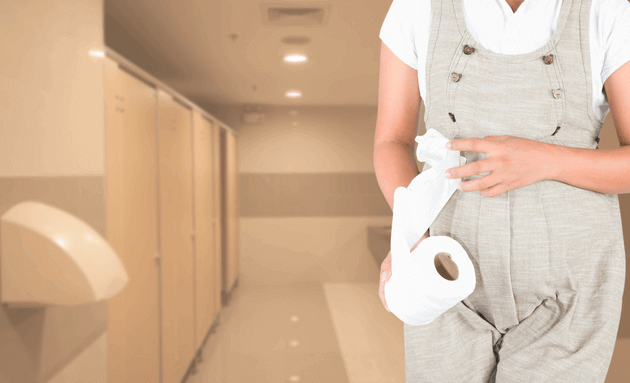Urinary Incontinence in Women: What You Need to Know
Urinary incontinence, or bladder leakage, is the loss of bladder control. The severity ranges from occasional urine leakage when you sneeze or cough, to an intense urge to urinate suddenly.
Urinary incontinence affects women twice as much as it affects men. It can be caused due to multiple reasons. However, it can be managed with simple changes in lifestyle and certain medical treatments.
What Causes Urinary Continence?

Urinary incontinence, or bladder leakage, is a symptom for multiple medical conditions. It is not a disease in itself. The causes of urinary incontinence will depend on the type of leakage you’re experiencing.
- Temporary urinary incontinence: Drinks like alcohol, caffeine, fizzy drinks, chocolate, artificial sweeteners, high spiced foods, chillies, and certain medications may act as diuretics - substances that stimulate your bladder and increase the amount of urine. It could also be caused due to:
- Urinary tract infection: Certain infections can cause a strong urge to urinate, or sometimes incontinence.
- Constipation: Hard stools can often damage the connected nerves or make it overactive, leading to increased frequency of urination.
- Urinary tract infection: Certain infections can cause a strong urge to urinate, or sometimes incontinence.
- Persistent urinary incontinence: Persistent urinary incontinence: It could also be caused due to underlying conditions like:
- Pregnancy: the increased weight of the foetus, along with hormonal changes, can result in incontinence.
- Ageing: With age, your bladder muscles decrease the bladder’s capacity to store urine. Furthermore, involuntary bladder contractions become as frequent as you age.
- Menopause: Deterioration of bladder tissues due to lesser oestrogen production after menopause can aggravate incontinence.
- Hysterectomy: Any surgery in or around a woman’s reproductive organ can cause urinary incontinence. The bladder and uterus are supported by many of the same sets of muscles and ligaments, which, if damaged, can lead to incontinence.
- Urinary stones: Hard, stone-like structures that may sometimes form in the bladder can cause urine leakage.
- Neurological disorders: Multiple sclerosis, Parkinson’s disease, brain tumour, spinal cord injury, or a stroke can also interfere with bladder control and cause urinary incontinence.
- Pregnancy: the increased weight of the foetus, along with hormonal changes, can result in incontinence.
Who is at risk of urinary incontinence?

Women are twice as more susceptible to urinary incontinence than men. That is because women have unique reproductive health events like pregnancy, childbirth, and menopause that can affect bladder muscles and ligaments, causing bladder leakage.
You may be at risk of urinary incontinence if:
- You’re overweight
- You smoke
- You have a family history
- You have other neurological diseases or diabetes
Pregnancy, Childbirth, and Urinary Incontinence: What is the Link?

During pregnancy, as your unborn baby keeps growing in size, it starts pushing down on your bladder, pelvic floor muscles, and urethra. With time, it causes your pelvic floor muscles to weaken and result in urine leakage.
This can continue into childbirth as well because your muscles are still healing. Problems during labour, or during vaginal birth can weaken the muscles and damage nerves that control your bladder. But if you’re having bladder leakage even after 6 weeks since childbirth, talk to your doctor.
Menopause and Urinary Incontinence: What is the Link?
Researchers believe that low levels of oestrogen in a woman’s body after menopause may weaken the urethra - which helps keep urine in your bladder until you’re ready to urinate. Also, like all other muscles, your bladder muscles will also weaken with age, which may also be a cause of urinary incontinence after menopause.
Treating Urinary Incontinence in Women

There are multiple treatment methods for urinary incontinence. Depending on the cause of your bladder leakage, your doctor will recommend a treatment method for you. Treatments include:
- Behavioural Modification Therapy: It involves learning techniques to control your bladder movement, such as limiting the amount of fluid you intake, cutting down on caffeine, etc.
- Physical therapy: Exercise such as Kegel’s exercise or other muscle strengthening exercises can help manage symptoms of urinary incontinence. Consult with your doctor before adopting any form of physical therapy.
- Vaginal insert: Removable vaginal inserts that can support the urethra
- Sling procedures: A minimally invasive surgical procedure in which a sling made of natural material is put around your urethra to support it.
There are various other treatment methods for urinary incontinence. Consult your doctor to know the best-suited treatment method for you.
Preventing Urinary Incontinence in Women
Urinary incontinence is not always preventable, especially if it is caused due to medical conditions or disorders. However, if you are experiencing temporary urinary incontinence, keep in mind the following tips to prevent bladder leakage:
- Maintain a healthy weight, eat whole grains, fruits, and green leafy vegetables
- Quit smoking and excessive alcohol consumption
- Practice pelvic floor exercises
- Eat more fibre to manage constipation
If you’re dealing with urinary incontinence, consult your doctor and make simple lifestyle changes, to begin with.






